In French, here.
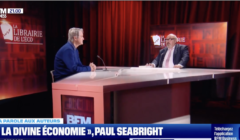

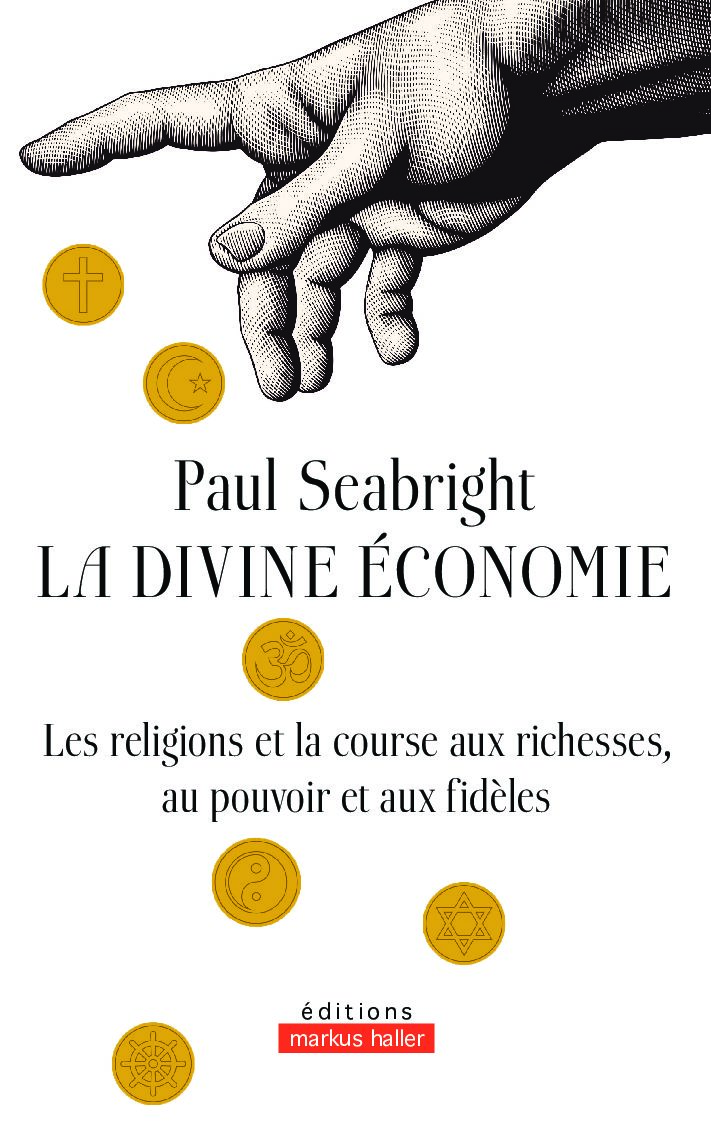
The French translation of The Divine Economy will be published on 29th January 2026 by Editions Markus Haller.
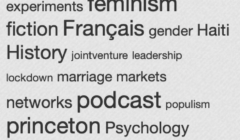
This page will direct you to the themes of my current research. Some themes have pages of their own, in particular:
Research on the economics of religion here.
Research on behavioral decision making here.
Research on gender, networks and marriage markets here.
In addition I am working with Guido Friebel on the medical science of ageing and its relationship to the organisational economics of selecting, motivating and retiring leaders.
I am working with Sergey Gavrilets on the evolution of zero-sum worldviews. We have a new paper published in PNAS.
My Google scholar page is here.
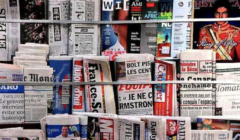
Voici quelques articles parus sur The Divine Economy dans la presse française:
1) Par Jean Duchesne dans Aleteia – “En quoi la foi n’est pas étrangère aux réalités économiques”. Moins une critique du livre qu’un survol d’approches à la place des sciences économiques dans l’étude de la religion. Article ici.
2) Entretien avec Thomas Mahler dans l’Express: “Au niveau mondial, le christianisme n’est pas en déclin face à l’islam”. Article ici.
3) Par Bertrand Jacquillat dans l’Opinion – “Plateformes numériques et religions: rivalités et concurrence”:
“Il peut paraître iconoclaste de soumettre l’espace religieux à l’analyse économique. Les religions pourtant s’y prêtent, du fait qu’elles partagent certaines des caractéristiques des organisations séculaires, et bénéficient d’une puissance financière indéniable”.
4) Une critique anonyme courte mais favorable dans books.fr: “Les religions comme marques”.
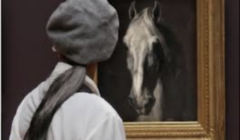
Here some very short (one-paragraph) unpublished reviews of works of non-fiction I have enjoyed and would recommend for at least some readers. In the reverse order in which I read them, not of publication, so most recent reads first:
February 2026:
Fractured France: A Journey Through a Divide Nation, by Andrew Hussey:
A well-written and fascinating tour of present-day France, taking in places as diverse as Dijon, Roubaix, Angers, Marseille and Manosque, asking the question why the French are so angry, failing to deliver an answer while stoking a vague sense of unease. In short, the message is that it’s unsettling to live here, even or especially for those of us who cannot imagine wanting to live anywhere else. It’s a bit strange for me as a social scientist who is deeply attached to France to read a book so rich on information and so deft at building mood, but so poor on analysis. I guess France is a country nobody wants to analyse coolly, with data (horror!), especially those who love it.
Why Plato Matters Now, By Angie Hobbs:
Engaging, enthusiastic account of Plato and his relevance for our modern predicament. Much clearer and freer of philosophical jargon than Agnes Callard’s Open Socrates (reviewed below), though with the less of the latter’s beguiling strangeness. I ended up entirely persuaded that Plato asked some far-sighted questions, notably about the fragility of democracy, though I’m less sure he had much in the way of useful answers. If you need a compelling case for studying ancient philosophers today, this is one of the best you will find (Disclosure: Angie is a personal friend).
December 2025:
Soft: A Brief History of Sentimentality, by Ferdinand Mount:
A fun and mostly convincing broadside against the many writers (and the movements they represented) who, over many hundreds of years, have attacked sentimentality as a form of false feeling. Mount shows such attacks were often motivated by naked snobbery, and also that they ignored or (worse) systematically devalued the many social reforms that were propelled by such “sentimental” waves of journalism, fiction and visual art. As you might expect from a broadside, he doesn’t spend any time seeking merit in the point of view he pillories. I’d have appreciated a thoughtful investigation of false feeling, what it means and how it functions. That will have to wait for a different writer, perhaps one better attuned to the social media age.
38 Londres Street, by Philippe Sands:
A gripping account of the arrest of Augusto Pinochet in London in 1998 and the subsequent battle over his extradition request to Spain, which ended in his being flown back to Chile. Interwoven with an account of the flight to Ecuador and then Chile of the SS Officer Walther Rauff, who had devised the method of gassing Jews with exhaust fumes in sealed vans, and later worked for Pinochet. I began the book thinking that immunity should almost always be an option for authoritarian leaders who can be induced to step down peacefully, but the events in the book modified my thinking, for several reasons. First, there’s a whole framework of international law which makes it difficult for individual countries to negotiate immunity. Secondly, when Pinochet was arrested there was a much criticism as well as support for the action. But the criticism was rarely framed as “Pinochet doesn’t deserve sympathy, but immunity was the price we had to pay for getting him to stand down”. It was usually “this man was a brave defender of freedom who is the victim of an opportunistic vendetta”. Immunity to dictators doesn’t just have the downside of letting them escape justice for their crimes – it also empowers those who want to spread propaganda in favor of similar crimes. We need to consider all these knock-on effects. One solution might be to tie immunity from prosecution with some kind of undertaking not to give interviews (like an NDA), so that if the person does start facilitating propaganda their immunity agreement lapses. Thirdly, in a repressive regime the opposition is demoralized, and the hope of gaining justice may be one of the only ways to motivate people to stand up to a leader at great personal risk. The right way to incentivize a leader to quit is to make quitting more attractive but also to make staying more costly; and immunity agreements may undermine the second even as they reinforce the first.
November 2025:
Le Roman des Regards, by Daniel Pennac:
A wonderful selection of images by Laurent Mallet, who had the brilliant idea of snapping visitors to museums as they look at paintings, and the even more brilliant good fortune to be observed by Daniel Pennac as he did so. Pennac began to follow him and the two struck up a friendship. It says something for the quality of the photos that Pennac’s essays seem relatively unremarkable beside them. The image at the top of this post is from the cover.
Historix: Les Coulisses de l’Histoire de France, by Jean-Yves Le Naour and Marko:
A comic-book version of French history which presents the various episodes through the lens of the efforts by Ernest Lavisse to construct a nationalist vision of French history for teaching in French schools under the Third Republic. Manages to be historiographically subtle and highly entertaining at the same time.
La Bataille de Science Po: Enquête au coeur de l’école du pouvoir, by Margaux Leridon:
An excellent account of the various crises that have gripped France’s most famous higher education institution in the last decade and a half. Written with clarity, humour and a shrewd grasp of the limits of the possible.
October 2025:
Le Cavalier de Notre-Dame, by Eric Crubézy:
After the great fire at Notre-Dame-de-Paris on the 15th April 2019, a lead coffin was discovered in the center of the cathedral. The body inside, with no name or inscription, was eventually identified as that of Joachim Du Bellay, one of the great poets of the Renaissance and a close friend of Ronsard. Eric Crubezy, who was closely involved in the work, takes us through the detective story and situates it in a wider set of reflections about Du Bellay and his time, as well as the changing nature of attitudes to death and disease.
April 2025:
A History of the Muslim World: From Its Origins to the Dawn of Modernity, by Michael Cook:
I don’t intend to review here many books that are directly related to my research, but I will make exceptions for those that will fascinate general readers. This remarkable and panoramic book not only does exactly what its title proclaims, but also provides many general insights along the way. Like the fact that “most of Arabia was too poor in agricultural resources to provide adequate returns to would-be state builders” (p.9), a predicament of almost all the Muslim world (with the exceptions of the Nile delta, and of Mesopotamia until the environmental crisis of the late 9th century). This meant that Islamic rulers were much more at the mercy of both external raiders and internal rivals compared to their Christian counterparts who had much more arable land available to tax. Or the fact that, for related reasons, in both Anatolia and the Balkans, one of the main drivers of conversion to Islam was the fact that the Quran forbids enslavement of Muslims, and the main threat of violence came from Muslim raiders. Though Muslims often found pretexts for enslaving other Muslims, the prohibition often worked – though usually at the expense of non-Muslim populations a little further way, like the sub-Saharan Africans who became victims of “the drying up of the supply of slaves from the Berber population of North Africa owing to the spread of Islam” (p. 660).
Grandparenting: On Love and Relationships Across Generations, by Terri Apter:
As a new grandparent I loved this book (disclosure: the author is a personal friend). Not only was it a pleasure to read but I also learned a great deal from it. The blend of case study and relevant science works extremely well. In particular it’s good to be reminded of the sheer variety of ways in which grandparents interact with their grandchildren and the parents of their grandchildren. The fact that there’s “no job description” for being a grandparent, as she puts it, is a source of strength even if sometimes of confusion. A rôle under continual reinvention.
March 2025:
The Evolution of Religions: A History of Related Traditions, by Lance Grande:
A massive and fascinating account of the world’s religious traditions, organised along phylogenetic lines – that is, through the creation of “family trees” of religious movements. The analogy to phylogenetic trees in biology is often illuminating, when it helps us to understand religious movements through comparison with those from which they diverged. Sometimes it is misleading: although there’s a fact of the matter about whether crocodiles are more closely related to birds than to lizards (surprisingly, they are), there’s no fact of the matter about whether Vodou is more closely related to African polytheism than to Roman Catholicism (it’s clearly influenced by both). The book also focuses on a movement’s doctrines to the exclusion of its social, political and economic organisation – but I still learned an enormous amount from it, and wish I’d known about it before writing The Divine Economy.
Open Socrates: The Case for a Philosophical Life, by Agnes Callard:
Much more of a philosopher’s book than Susana Monsó’s (below), and not in a good way since it contains more stilted professional writing, including phrases about “knowing that p” and so forth (why can’t philosophers come up with more elegant motivating examples?). But it more than compensates for this by its beguiling portrait of Socrates as neither gadfly nor midwife but somehow both, as a person we must all feel sad not to have known. Why has his example been so hard to emulate?
February 2025:
Jane Austen: A Life, by Claire Tomalin:
This is a conventionally structured but very finely written literary biography. By that I mean that you do not learn much about the economy or society of Jane Austen’s time, nor even much about her inner life, concerning which Tomalin declines to speculate beyond the few traces that have been left to us. But it paints an evocative picture of what it might have been like to know her. I was evidently unfair to Jane Austen in implying (point 10 here) that she was uninterested in the lives of children or servants. She was apparently kind and attentive to both, even if she didn’t think they were interesting enough to feature in her novels except as minor scenery. Despite Tomalin’s elegant portrayal, it remains mysterious to me how she was able to break free of the stifling conventions of her social milieu and bring her startling talent to the attention of the entire world.
December 2024:
Playing Possum: How Animals Understand Death, by Susana Monsó:
It’s extraordinarily hard to do contemporary philosophy while also teaching your readers many empirical facts they didn’t know about the world, but Susana Monsó pulls off this feat magnificently in this mixture of natural history and conceptual analysis. There’s exactly as much conceptual analysis as is needed to understand the impressive array of accounts of animals reacting to death – their own and others’ – plus a real feast of animal observation that is never cute but always to the point. The only other philosopher I can think of who comes anywhere near this is Peter Godfrey Smith whose book Metazoa made me realise how much the world can teach us about animal consciousness. A tour de force.
August 2024:
The Escape Artist: The Man Who Broke Out of Auschwitz to Warn the World, by Jonathan Freedland:
This excellently written and narrated book is several things at once: a compelling true adventure story, a harrowing account of one of the greatest atrocities in history, and an intriguing meditation on the historical processes that shaped the reception of the news of the death camps as these began to emerge in Europe from 1942 onwards, as well as an attempt to answer the question “what difference would it have made if more people had known this earlier?”
July 2024:
Jews, Judaism and Success, by Robert Eisen:
I have a longer review which has appeared in Contemporary Jewry and which begins “Robert Eisen has published an excellent book setting out a clear, cogent and highly original answer to the question why Jews have ‘become such a remarkably successful minority in the modern Western world'”.
Second Chances: Shakespeare and Freud, by Stephen Greenblatt and Adam Phillips:
A collaborative project between a great literary critic and a renowned champion of psychoanalysis exploring how the chance to reset your life after initial setbacks features as a recurrent theme in the works of these two towering cultural figures. Is it just me, or is it something intrinsic to the two subjects, or is it just an accidental feature of these two writers’ respective prose styles? I find the chapters on Shakespeare luminous and inspiring, but I often struggle to make it through the meandering sentences of the chapters on Freud and emerge into sunlight on the other side.
May 2024:
Right Kind of Wrong: Why Learning to Fail Can teach Us to Thrive, by Amy Edmondson:
A zinger of a book in the inspirational business genre, replete with anecdotes about the way in which rebounding from failure can lead to both personal wisdom and professional success. Distinguishes different types of failure (simple, complex and intelligent) and different attitudes to them, and links this to the notion of psychological safety in organisations which Edmondson has pioneered over many years. You get the point of the argument quite early in the book, so the subsequent anecdotes illustrate rather than develop the theme.
Late Admissions: Confessions of a Black Conservative, by Glenn Loury:
Fascinating, and not just because I know, like and admire the author. An absorbing account of what it is to have a heart stronger than your head, and a head smarter than your heart. It strikes me as having many wise things to say about racism in America, but then, what would I know? Makes me reflect hard about whether we can escape the prism of identity: we can and we can’t, Loury seems to be saying. Economists are not known for their emotional candour, but Loury dispatches this cliché with sometimes brutal vigour.
April 2024:
Geography is Destiny: Britain and the World, a 10,000 year history, by Ian Morris:
A jaunty gallop through the history of the British Isles, with the running theme that the English Channel is eternal but its role as a barrier or a bridge is not. Technology (especially boats, ships, planes and missiles) and institutions, on both sides of the Channel, have determined whether the inhabitants on the norther side of the water have preferred to stand aloof from those on the south, or have seen their destiny as inseparable. The answer keeps changing; Brexit was just another variation on a theme that has been playing for millennia. Lively, often tendentious, always fun.
March 2024:
Christianity’s American Fate, by David Hollinger:
A clear and concise overview of Hollinger’s research on the way in which the US has come to have “an increasingly secular society…saddled with an increasingly religious politics”. Discusses how ecumenical Protestantism took a leading role in progressive politics from the interwar period onward. In the process it paved the way for some progressive ecumenicals to leave religion altogether, and for some conservative ecumenicals to join the evangelical movement, which in turn became more politically engaged on the right. Especially good on the role of missionary service in shaping ecumenicals’ commitment to anti-racism and anti-colonialism, and on the immigration of Jews to America in overcoming the Protestant monopoly on American cultural life.
Politics on the Edge, by Rory Stewart:
A revealing and well written account of Rory Stewart’s career as a Conservative MP and minister. Depressingly candid about the dysfunction and cynicism of British political life and the utter unsuitability of the House of Commons for promoting effective government. Sometimes unintentionally funny, as when he writes (p. 274) that, during a conversation with a prison governor, “I stopped talking and tried to give him time to tell me why he felt as he did”. You have the impression that Stewart did most of the talking when he met civil servants, so his bewilderment that they did not always like him or take his advice is rather touching.
Nuclear War: A Scenario, by Annie Jacobsen:
Terrifying. And not even funny.
January 2024:
The Upside-Down World: Meetings with the Dutch Masters, by Benjamin Moser:
An engaging account of a very literate and not particularly visual person getting to grips with the main Dutch painters of the 17th century. Pressed me to think, even when I disagreed with his judgments. Which was often – for instance, I couldn’t understand why he he described it as a “tragedy” that Jan Lievens did not develop a single core style in the way that Rembrandt did. This seemed like a version of the pathetic fallacy – transforming Moser’s sense that the work is less satisfying into a major life-problem for Lievens. Moser intrudes more on the reader than an art-critic should. But if – not if, when – I next return to the Netherlands with time to see some paintings I will want to have this book with me; I wouldn’t want to pass up enjoying his often spiky company.
What’s the Use of Philosophy? by Philip Kitcher:
There were many things in this that I liked. Kitcher sets out his stall and gives a credible account of why it’s rewarding to do the kind of philosophy he does. But gives only the sketchiest of reasons beyond invective to justify his regarding some other kinds of philosophy (mainstream metaphysics, epistemology and philosophy of language, for instance) as sterile or pointless. What’s missing is an argument, grounded in the nature of higher education and the scarce resources available to universities, for why philosophy departments should concentrate more on Kitcher’s style of philosophy and less on traditional subjects like metaphysics. I’d have been open to such arguments, but was left with a feeling that I’d been given only the appetizer and was still waiting for the main course.
Here are some very short (one-paragraph) unpublished reviews of works of fiction I have enjoyed and would recommend for at least some readers. In the reverse order in which I read them, not of publication, so most recent reads first.
February 2026:
Je Suis Romane Monnier, by Delphine de Vigan:
Delphine de Vigan is one of the shrewdest writers on the world of social media writing today – and she produces novels that read like thrillers but reverberate in the memory. Since I discovered her book D’Après Une Histoire Vraie (published in 2015) I have found each one more engaging than the one before. This latest novel follows a man who arrives home after an evening in a bar and realizes that he has taken the smartphone of a young woman sitting next to him whom he had hardly noticed. She has evidently taken his. It turns out that this was deliberate on her part, and not because she wants an excuse to meet him. She returns his phone but leaves hers with him. Why? I won’t say more, except that the book is funny and sad in equal measure, and manages to be accessible and subtle at the same time. I find it encouraging that Delphine de Vigan worked for a market research firm for eleven years: none of that time was wasted. PS She also has written a lovely little play called Les Figurants about a group of extras who are appearing in film whose plot they never understand and whose leading actors they never meet.
January 2026:
The Ten Year Affair, by Erin Somers:
The fact that this book has been ludicrously over-hyped (“The best book about adultery since Madame Bovary. —Tony Tulathimutte, author of Rejection“) should not detract from the fact that it’s amusing, deft and enjoyably written – a stand-out in a crowded market of mostly forgettable writing about adultery. The central idea of running two parallel stories – one about the extra-marital relationship in real life and one about what they are imagining – works well, and captures elegantly the strange mix of excitement and disappointment that the impossibility of the situation generates. The relationship is transgressive in life (though not very, as it turns out) and curiously bland in the imagination where more is expected from it. The behavior of the adults is shrewdly observed, but the novel has a real blind spot in portraying the children, who come across as no more than tedious impositions on the freedom of their parents. It’s a mystery that anyone would ever have children if this is all they are. It doesn’t capture the way in which children can hold an entire marriage hostage because of the magnetism of their claim on your attention. I’d just finished reading it when I was brought up short by this interview in the New York Times with Belle Burden, New York socialite whose husband left her several years into a “picture-perfect marriage”. Her husband is telling her and the children that he wants a divorce, one of the daughters is screaming and suddenly “my husband looked at me and said, ‘I’m starving. Can you make me a sandwich?’” Not only does it pass without comment that the husband is so entitled that he expects her to make him sandwiches mid-crisis. More weirdly, it doesn’t seem to occur to her (nor to the NYT interviewer) that if she has treated her husband on a par with her children, making them sandwiches so routinely that they cannot make their own, it’s not a mystery why he no longer feels sexual attraction to a woman who is proud to act as his mother.
October 2025:
The Eustace Diamonds, by Anthony Trollope:
This is the first of the Trollope novels that has really worked for me – I found The Way We Live Now tedious. The portrait of Lizzie Eustace, rich, beautiful owner of the eponymous diamonds (or not? that’s the issue for much of the book) is troubling. In many ways she is a deeply unsympathetic character – selfish, superficial, manipulative. Yet once Trollope has created her she seems to escape his control. She does so precisely because she can’t escape being controlled by the stifling environment of Victorian Britain, which forced so many women to choose between remaining wallflowers or becoming agents of their own story at the price of being cast as manipulative monsters. We saw earlier in Jane Austen how it was mostly luck that allowed such women to end up with Mr. Darcy or Mr. Knightley rather than Mr. Collins or Mr. Elton. And poor Lizzie Eustace ends up with the parson Mr. Emilius! By the end she deserves him, which is the worst thing of all. More than half a century after Pride and Prejudice, Trollope’s smooth cynicism hardly seems to count as progress.
August 2025:
Precipice, by Robert Harris:
A remarkable fictional reconstruction of the affair between Herbert Henry Asquith, the British Prime Minister at the outbreak of the First World War, and Venetia Stanley, a young unmarried aristocratic woman less than half his age. Harris has had the brilliant idea of using the actual letters from Asquith to Stanley, most of which survive, and inventing her replies to him, which don’t. It is startling how many he wrote to her (an average of more than two a day between July 2014 and May 2015), and how indiscreet he was. Some were written during cabinet meetings, some included detailed military intelligence, and the writing of some clearly distracted Asquith at crucial moments, notably in the meeting at which the green light was given to Churchill’s disastrous Gallipoli campaign. Grippingly written and historically fascinating.
May 2025:
Jonathan Strange and Mr. Norrell, by Susanna Clarke:
Arthur C. Clarke famously wrote that “any sufficiently advanced technology is indistinguishable from magic”. I see Susanna Clarke in this novel as inverting the statement: magic (if it were real) would be indistinguishable from a sufficiently advanced technology. She imagines a period of a little over a decade in the history of early 19th century England (1806 to 1817) in which two real magicians practise real magic in ways that make a real difference to the country (especially in the conduct of the war with France). But these are not prophet-like men with deep access to ancient wisdom, and the message is not that the universe has more mysterious forces than we know (“there are more things in heaven and earth, Horatio…”). On the contrary, these are educated men who are also rivalrous, often petty, often very confused about what they are doing and why. They blunder about, sometimes producing spectacular achievements and sometimes failing ignominiously, bridling at minor slights and worrying more about their standing at court and in society than about their impact on the world. Just like real entrepreneurs, in fact. They fail to understand the underlying causal mechanisms they are setting in motion, and try to reverse-engineer their own skills from the effects they find themselves capable of producing. Rather like the purveyors of large language models of AI in our own time, they are as mystified as the onlookers by the extent of their powers, and they speculate as helplessly about it all as anyone else. Whereas most fantasy writers would have us believe that if magic were real, the world would be profoundly different, Susanna Clarke reminds us here that it might be different only in the details. Perhaps magic really does exist – we just call it “technology”. In the second half the novel becomes more sombre and more spectacular, with magical powers bubbling up everywhere, and the narrative becoming more conventionally fantasy-epic. At 846 pages it’s over-indulgent, but clearly many readers will be carried along. I was more seduced by the economy of her later novel Piranesi (see below).
April 2025:
The Great Gatsby, by F. Scott Fitzgerald:
This (like the Austen project below) was also provoked by a publication anniversary (it’s been exactly a century). One of my abiding images is of Gatsby himself, who does not drink alcohol, standing looking out over one of his parties where almost everyone else does; I think we are meant to feel some kind of envy for his sobriety. This reminded me of three things: the first was an evening perhaps 20 years ago at a Michelin starred restaurant in Puymirol (Lot-et-Garonne), where the famous chef Michel Trama came out to meet his guests, saying barely a word to any of them, and it occurred to me that he must be a very shy man who could not bear to talk to people under any other conditions than those of being the star. The second was that in almost all of Jane Austen, nobody enjoys the parties very much except in retrospect. The third was a passage in Susanna Clarke’s Jonathan Strange and Mr. Norrell, which I am currently reading, where she writes what must be a satire of the parties in Jane Austen: “Surrounded by cross, hot strangers, your chance of rational conversation is equal to what it would be in an African desert. Your only wish is to preserve your favourite gown from the worst ravages of the crowd. Every body complains of the heat and the suffocation. But if it is all misery for the guests, then what of the wretchedness of those who have not been invited? Our sufferings are nothing to theirs! And we may tell each other tomorrow that it was a delightful party”. I wasn’t quite charmed enough by any of the characters in The Great Gatsby to feel their pain more than fleetingly. But for readers who are more moved than I am by Gatsby’s yearning, for authenticy but also for recognition, to be successful while still despising success, I can understand the magic of this portrayal.
March 2025:
Jane Austen at 250: a tragic Marxist feminist?
This subject has its own page here.
December 2024:
Creation Lake, by Rachel Kushner:
At once a thriller and a philosophical novel, about a woman in her thirties whose freelance work is to infiltrate groups of radical activists in America and Europe on behalf of state or private organisations, inciting them to acts of violence that can then be used to destroy them. She moves to rural France to join a commune that both seeks to escape contemporary agro-capitalism and to commit acts of defiance against it. The plotting is deft and the characterisation subtle, and the philosophy closer to the unphilosophical essayism described here by Agnès Callard. It’s – fortunately – not so much a philosophy of capitalism as a philosophy of character (what she calls “salt”) which tries to identify what remains when an individual has been blindsided by everything life can throw at them. I finished it this morning (December 27th) and I can already sense that passages and scenes will remain with me for a long time into 2025 and perhaps beyond.
November 2024:
The House of Doors, by Tan Tan Eng:
Evocative imagination of a visit to Penang by Willie Somerset Maugham in 1921 that links the histories of Maugham, the first President of Republican China Sun Yet Sen and the convicted murderess Ethel Proudlock (all real people) through the eyes of Maugham’s fictitious hostess Lesley Hamlyn, the wife of a British lawyer. The prose is a little uneven for my taste, teetering between self-conscious poeticism and a sometimes clunking reaching for the aphorism. But the story is well structured, and the sense that all the characters have their multiple layers of secrets makes in the end for a compelling read. Its suggestion that it is the “real” version of events behind the story “The Letter” in Maugham’s The Casuarina Tree , which itself led to Maugham’s being considered persona non grata in the expatriate British community for having betrayed secrets, contributes to the intrigue.
October 2024:
Cent Million d’Années et Un Jour, by Jean-Baptiste Andrea:
A lyrical account of an expedition by a palaeontologist to discover what he is convinced is the site of a complete dinosaur skeleton in a remote valley in the Alps. A man’s struggle with himself, with his few companions and with the natural world. Images of glaciers and tiny men silhouetted against them.
September 2024:
Alice Munro:
NOTE: The news that Alice Munro remained silent over the abuse of her daughter Andrea Robin Skinner by Munro’s husband Gerald Fremlin has made me reluctant to return to the work of Munro, which I began to explore after Munro’s death, as reported in the next paragraph. I will do so in due course.
Since the death of Alice Munro, whose work I didn’t know, I’ve been trying to catch up on what makes this chronicler of small-town Canada so compelling. There seems to be no one place to start, so I’m undertaking a meandering tour of her many short stories in much the same way as she describes herself, her brother and her traveling salesman father making a tour of the rural Ontario countryside in “Walker Brothers Cowboy”, the first story in the collection A Wilderness Station: Selected Stories, 1968-1994. As some perceptive critic (I don’t remember who) pointed out, you don’t remember her sentences but you do remember her scenes. And her moods, I would add, and the perplexity everyone feels when the world doesn’t answer you in the way you’ve come to expect. The second story in the collection, “Dance of the Happy Shades”, is a delicious example of this: it starts with small-town gossip and backbiting and ends in quite unexpected epiphany. Others I’ve admired, and been bewitched by, include “The Beggar Maid”, in the same collection, “In Sight of the Lake”, in the collection Dear Life, and the well-known but nevertheless magnificent “The Bear Came Over the Mountain”, in Hateship, Friendship, Courtship, Loveship, Marriage. The last two are particularly absorbing, and scary, for those of us with elderly relatives or nearing old age ourselves.
July 2024:
The Winding Stair, by Jesse Norman:
A gripping historical novel set at the end of the reign of Queen Elizabeth I and the beginning of the reign of King James I. It charts the rise and rivalry of Francis Bacon and Edward Coke, and along the way makes subtle points about how different visions of the law serve conflicting political and religious agendas. Stylistically owes much to Hilary Mantel’s Cromwell trilogy, but still develops a recognisable voice of its own. An intellectually demanding read, but it keeps the story flowing and is never dull.
June 2024:
Columba’s Bones, by David Greig:
A disturbing tale of a community of monks on the Island on Iona, off the West coast of Scotland, in the year 825. They suffer a brutal attack from Viking raiders, in the aftermath of which a handful of survivors try to rebuild their lives on this lonely outpost. Violent but also surprisingly lyrical at moments. Spare prose, with vivid images.
May 2024:
Piranesi, by Susanna Clarke:
One of the most haunting novels I have read in years. Set in a fantastic dilapidated palace whose origin is never specified but whose relationship to the everyday world is radically reassessed as the story advances. Unlike anything else I know. A masterpiece.
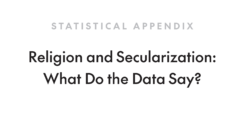
This page contains the data and code used in the Statistical Appendix to The Divine Economy: How Religions Compete for Wealth, Power and People, published by Princeton University Press in May 2024.
Here is the Excel File with the data for Figures 1 to 12 in the Statistical Appendix:
Here are the Stata data file and the associated do file for the remaining Figures 13 to 16.
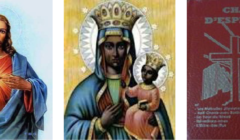
In the last few years I have been involved in a range of research on the economics of religion with several co-authors, including Emmanuelle Auriol, Diego Delissaint, Maleke Fourati, Julie Lassébie, Pepita Miquel-Florensa, Amma Panin and Eva Raiber.
In May 2024 Princeton University Press published my book The Divine Economy: How Religions Compete for Wealth, Power and People. More details here.
I took part in the IAST podcast Crossing Channels on the subject “What Is the Future of Religion?”, released in May 2023.
Here are the publications to date from these projects:
Betting on the Lord: Lotteries and Religiosity in Haiti (with Emmanuelle Auriol, Diego Delissaint, Maleke Fourati and Pepita Miquel-Florensa), World Development 144 (2021), https://doi.org/10.1016/j.worlddev.2021.105441
US Churches’ Responses to Covid-19: results from Facebook (with Eva Raiber), pre-print in CovidEconomics, issue 61.
Trust in the image of God: Links between religiosity and reciprocity in Haiti (with Emmanuelle Auriol, Diego Delissaint, Maleke Fourati and Pepita Miquel-Florensa), Economics of Transition and Institutional Change (2020), https://doi.org/10.1111/ecot.12263
“God insures those who pay? Formal insurance and religious offerings in Ghana” (with Emmanuelle Auriol, Julie Lassébie, Amma Panin and Eva Raiber), Quarterly Journal of Economics 135(4), (2020), pp. 1799-1848, https://doi.org/10.1093/qje/qjaa015.
“On the Origins of Enchantment: not such a puzzle”, Religion, Brain and Behavior 10(3), (2020), pp. 345-357, https://doi.org/10.1080/2153599X.2019.1678517.
“Religion and Entrepreneurship: A Match Made in Heaven?”, Archives des Sciences Sociales des Religions 175 (2016), pp. 201-219.
Here are working papers:
“Alcohol, Behavioral Norms and Sexual Violence on US College Campuses”, CEPR discussion paper number 17147.
I also have an op-ed piece in Project Syndicate related to these themes: “Is Christianity Losing to Islam?”, 1st June 2019, available here.

First, links to some short (one-paragraph) unpublished reviews of books I enjoyed and would recommend to at least some readers (I include here only books that stand out from the majority I read). There are only a few of these now (February 2026), but I will update them regularly as I read more.
Short reviews of recommended fiction.
Short reviews of recommended non-fiction.
Next, here are links to longer reviews I published in 2022-2025, beginning with the most recent:
David Lay Williams: The Greatest of All Plagues: How Inequality Shaped Political Thought from Plato to Marx, in European Historical Quarterly, 55(3), 2025.
Colin Mayer: Capitalism and Crises: How to Fix Them, in Society, 23 May 2025.
Charles Hecker: Zero Sum: The Arc of International Business in Russia, in the Times Literary Supplement, 9 May 2025.
Robert Eisen: Jews, Judaism, and Success: How Religion Paved the Way to Modern Jewish Achievement
“O lucky man! What poker players do and don’t have in common with plutocrats”, a view of Nate Silver’s On The Edge: The Art of Risking Everything, in the Times Literary Supplement, 22 August 2024.
“Thomas Nagel: Moral Feelings, Moral Reality, and Moral Progress”, in Society, 06 February 2024.
This is part of a symposium on Nagel’s book; the other (gated) contributions to the symposium can be found here.
“Things can only get better? The ambivalent impact of innovation on society”, a review of Daron Acemoglu and Simon Johnson: Power and Progress: Our thousand-year struggle over technology and prosperity, in The Times Literary Supplement, July 14, 2023.
“Trouble in paradise. Why is economic progress so little cause for celebration?”, a review of J. Bradford DeLong: Slouching Towards Utopia: An economic history of the twentieth century, in The Times Literary Supplement, 23 September 2022.
“Thomas Piketty: A Brief History of Inequality”, in Society, 31 January 2023.
“Please sir, can I have quite a lot more?”, a review of Sebastian Mallaby: The Power Law: venture capital and the art of disruption, The Times Literary Supplement, 18th February 2022.
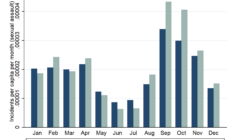
This paper, joint with Julia Hoefer, is Discussion Paper number 17147 by the Centre for Economic Policy Research.
Abstract:
This paper explores the role of social norms in influencing the incidence of sexual assault, and the contribution of alcohol to such events. We build a decision theoretic model where agents may use alcohol as a “disinhibitor” to undermine social norms discouraging consensual sexual encounters outside marriage. This makes non-consensual encounters more likely. Stronger norms against consensual sex might therefore increase the incidence of non-consensual sex. We test the theory on data from US college campuses, using the presence of Planned Parenthood clinics in the county as an indicator of norms more accepting of consensual sex. Controlling for other factors, colleges in counties with fewer clinics have more incidents of rape and sexual assault in which alcohol is implicated. Colleges affiliated to the National Collegiate Athletic Association also have more such incidents, suggesting that sporting institutions also act as facilitators of a culture of sexual aggression. We provide suggestive evidence from attitudinal surveys and from campus religious affiliation that disapproval of consensual sex may indeed be involved. We explore rival explanations such as reporting and selection biases.